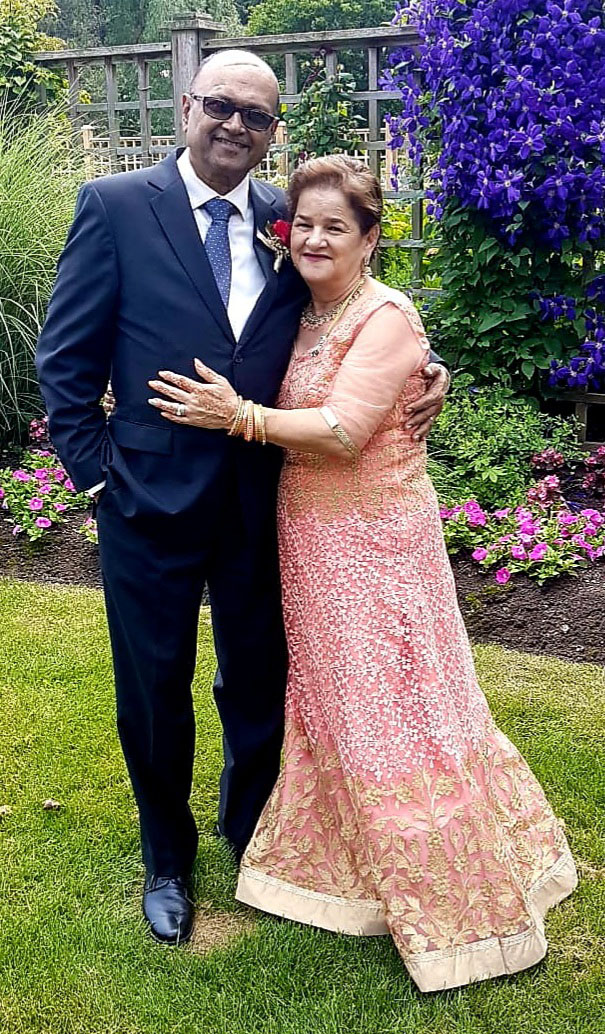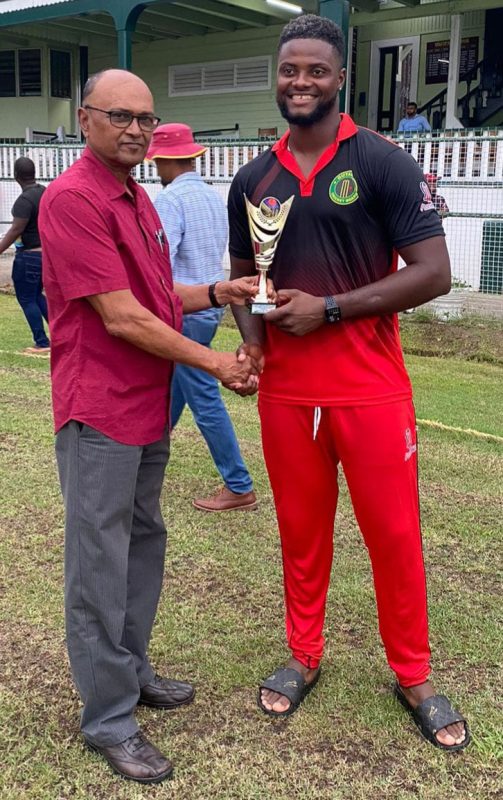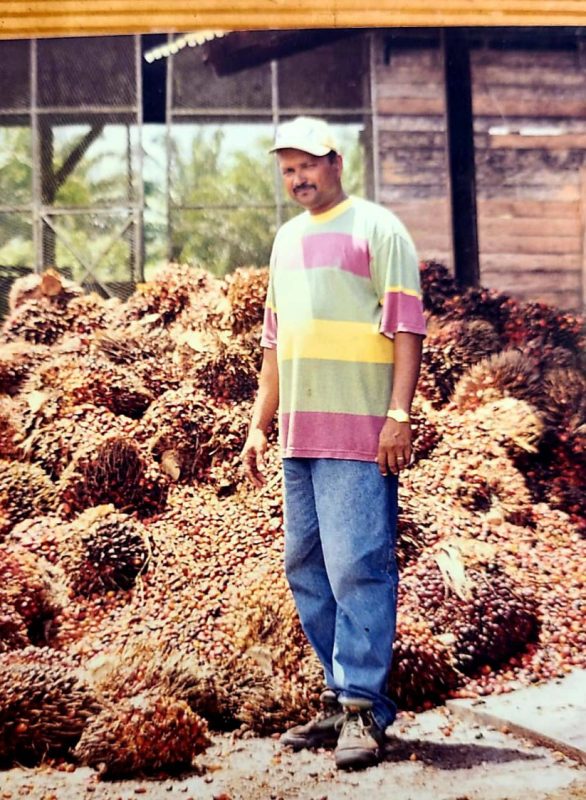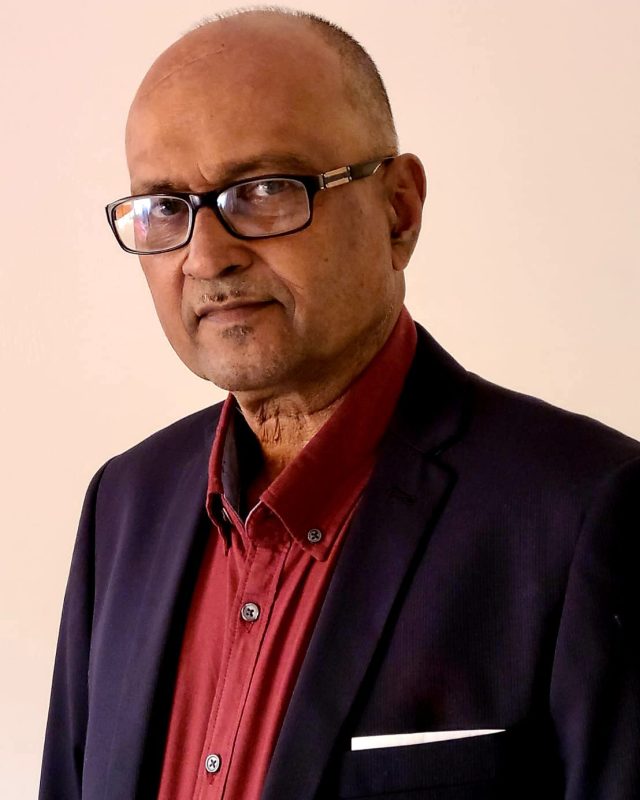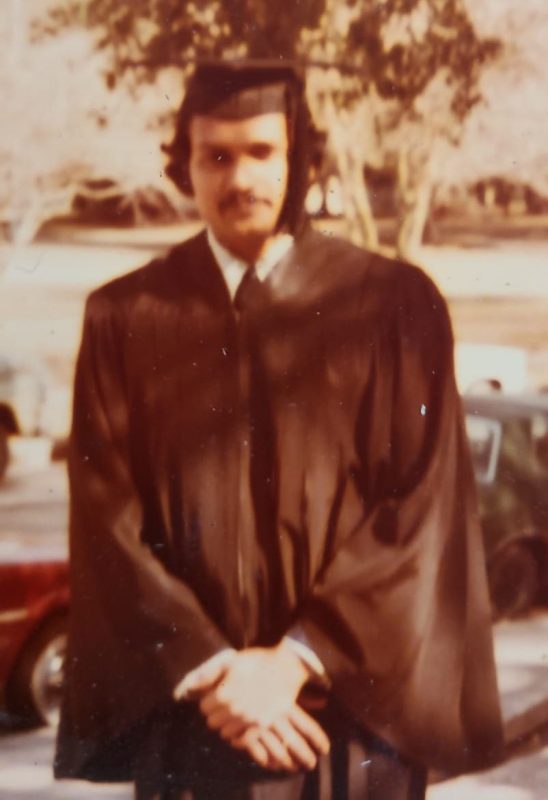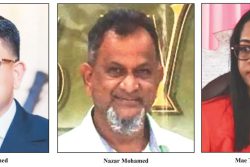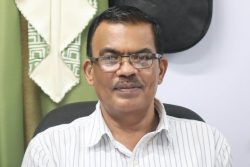At 70 years old, farmer, miner, and businessman Deleep Singh lives a fulfilling life and he likes to share his knowledge. He is involved in many social and sporting organisations that provide opportunities for people, including many young people, to help themselves. Recently, he became involved in politics at the community level.
“I like to be helpful to my community. I don’t live isolated. To me God has put me on this earth to help people and I have helped thousands. I’m involved in many social activities and organisations. Many organisations clamour for my leadership but I am getting aged and I’m not as strong and able-bodied as before,” the social/community activist and sports administrator told Stabroek Weekend from his home in Charity, Region Two (Pomeroon/Supenaam).
At present, Singh is the president of the Essequibo Cricket Board, vice president of the Guyana Cricket Board and a director of Cricket West Indies.
He was the former president of the Essequibo Chamber of Commerce, former president of the Essequibo Technical Institute’s board of governors and a former member of the board of directors of the Guyana School of Agriculture (GSA), which was one of his alma maters. He served as chairman of Charity Secondary School Parent Teachers’ Association where every opportunity he was given he gave motivational speeches to the students and offered them career guidance.
He was president and a founder member of the Guyana Coconut Growers Association and was active in the resuscitation of the coconut industry in Region Two. He also served as its treasurer. “Dr Leslie Chin was also vibrant in the resuscitation of the coconut industry. We worked together to resuscitate and develop the industry back in the days,” he said.
A practising Hindu, he is the president and a founding member of the Upaar Kaaric Sabha, a religious organisation on the Essequibo Coast.
He is the deputy chairman of the Charity/Urasara Neighbourhood Democratic Council (NDC). He got involved “in a little bit of politics,” he said, “to see how I can better the lives of others through that avenue. I usually go out with the politicians and when I speak and make recommendations it is based on my knowledge.”
He became involved in politics in recent years because he wants to see the infrastructure in his community develop and ensure that services reach the people. “I have the managerial skills, so I can be of service. The base of the country starts in these little communities,” he noted.
Asked about the Charity Market Wharf, he said, it is a government project. However, the NDC has been advocating to have it taken down and replaced with a beautiful structure. “I think it is in the pipeline and the government is looking at it seriously,” he ventured.
At present, the government is building another farmers’ wharf at Charity next to the present one because of a boost in agricultural production in the Pomeroon.
Singh lives in Charity and is the proprietor of WDs Hotel and Mall.
A proud Essequibian, Singh was born and grew up at Grant Enterprise in the lower Pomeroon River. “I always talk about where I came from,” he said. “It’s the last place in lower Pomeroon and the first place coming in from the Atlantic.”
He attended Martindale Primary School. After writing the common entrance examinations he attended the then Indian Education Trust College now Richard Ishmael Secondary in Georgetown during the late 1960s early 1970s where he successfully wrote the General Certificate of Education Ordinary and Advanced Level examinations. In Georgetown, he lived with his grandmother and aunts; his parents remained in the Pomeroon where they managed a farm and a business.
GSA, LSU
After writing A-Levels he wanted to pursue medicine, but because it was expensive to study abroad he opted to study agriculture at the GSA from 1974 to 1976. At the time the University of Guyana did not offer a bachelor’s degree in agriculture.
“GSA was the ideal stepping stone for me. There, I matured a lot. We lived in the dorms where we did everything for ourselves. GSA prepared me to be an independent thinker,” he said.
In 1976 he was the only student to graduate with distinction.
“I went to GSA with nine subjects at O-Levels and two subjects at A-Levels. I was asked, ‘Why did you come to GSA?’ I had gone there to get hands-on training in farming and to learn more about technology in agriculture so as to join my father in farming and to prepare me for the job market,” he said.
At GSA, he went to the agricultural farm or the livestock farm every morning for an hour and then returned to shower, have breakfast and attend classes.
“That routine disciplines you. You got credits for going to the farm. Tending to the poultry and cattle provided hands-on knowledge. We had a cooperative farm. GSA produced all the products – livestock, poultry, vegetables that we used in the cafeteria and we sold the surplus.” he recalled.
During his first week at GSA, he recounted, “The senior students gave us an initiation exercise to test our mettle. We had to run on the road and when we returned they made us weed with dull cutlasses. That in itself prepared us for what was to come. A number of students left after that first week. I had some good teammates and they said, not to worry. I withstood the pressures.”
Apart from local students from across the country some were from overseas. One of his roommates was from Belize and another was from the Bahamas.
“The curriculum at GSA was comparable with the first and second year at any top university offering agricultural studies,” he opined.
When he submitted his transcript from GSA for entry to Louisiana State University (LSU) in the US, he was given a two-year exemption for his bachelor’s degree. “One of my professors came down to GSA during my time and encouraged students to apply for entry to LSU. So if you obtained a distinction or credit, you received two years off your bachelor’s degree programme,” he said.
Singh wanted to do veterinary medicine but because of limited space, he studied animal science specialising in dairy production. Before he left LSU he took part in a cattle-judging competition and won the first prize.
“GSA left records at LSU through our performances. All GSA students did exceptionally well at LSU. In my time we were about eight and we met on weekends to support each other. We had other students who were from Guyana but not [from] GSA,” he said.
As a senior he assisted the international student office in the orientation of foreign students in the new environment.
In 1978, while at LSU, on the morning he was due to register for the final semester he got the news that his father had died. He had already been accepted to pursue a master’s degree.
“It was heart-wrenching. I was the eldest son. My other siblings were still in school. I came back home to put things in order with my mom,” he recalled.
Singh returned to LSU a year later, completed the bachelor’s degree and then returned home. He did not pursue the master’s degree.
He married into the Alfonso family of Charity the same year he graduated from LSU and will celebrate his 44th wedding anniversary in August. He is the father of three children.
Farming
On his return to Guyana in 1980 he sought a position as a lecturer at the University of Guyana but the salary was poor and he went into farming becoming a full-fledged farmer in the Pomeroon. “I farmed for many years and I did everything a farmer does,” he said. “I did some other things but my main areas were farming, gold mining and business.”
On his farm, he planted coconuts, ground provisions, cash crops and rice.
“At the peak of my farming career, I cultivated over 800 acres of land in rice, livestock, coconut and other crops. I exported my copra and other farmers’ copra to Trinidad and Tobago. Back in the days the coconut industry was not as vibrant as it is now. We used to produce about three million nuts in the Pomeroon and now we are producing about 50 to 60 million,” he said.
Flooding was one of his main challenges in the Pomeroon and to combat it, Singh bought an excavator.
“I was probably the first farmer to purchase one in the Pomeroon. I started empoldering my land and that was how I survived the floods to successfully develop my farm. I did a lot of innovative stuff to better farm in the Pomeroon,” he stated.
“I think farming improved in the Pomeroon because of my efforts and the example I set. I’m not selfish with my knowledge. I share it all the time and whenever I go on outreaches.
“I’m satisfied with my life. There is not much I would want changed if I have to relive it. My life can be an inspiration to the younger kids who want to do agriculture as a career. I would encourage anyone to study at GSA regardless of your status or your educational background.”
Cricket
An avid cricketer in his prime but now a cricket administrator, Singh had his own cricket club, which he funded and sometimes captained, and his own cricket ground at Grant Enterprise.
“We organised a lot of competitions in the Pomeroon,” he said. “Back then I was vice chairman of the Pomeroon Cricket Association and in 2002 I became the vice president of the Essequibo Cricket Association.”
Singh said he entered cricket administration to create opportunities for young people. “It is not all about academics and secular education. We must have some form of sport in our lives for recreation and relaxation. Essequibo has produced cricketers of quality, not only to represent our county but the country and West Indies also,” he noted.
Now in his second term as president of the Essequibo Cricket Board, he said, “I took cricket from nothing to where it is now in Essequibo. I resuscitated an organisation that was grinding to the ground. Today we are competing equally with Demerara and Berbice. We now have players representing Guyana at all levels. We have and had players in the West Indies team too, including Keemo Paul.”
With the construction of a stadium at Anna Regina and the rehabilitation of sports grounds countrywide with facilities for cricket, Singh said, “the future of cricket is bright. You can be a professional cricketer now and earn millions of dollars by just playing the game in your youth. I am happy to be a part of cricketing organisations that have created opportunities for the young.”
A couple of national cricketers, male and female, Singh noted, from Warapoka in the Moruca sub-region have represented Essequibo and Guyana.
Waramuri, also in the Moruca sub-region he said, has also produced a number of junior national players. Essequibo, he noted, won the first inter-county under-13 cricket competition held last year in which a Waramuri player was part of the team.
“Under my stewardship I have extended cricket way into Moruca. We are now looking at Port Kaituma,” he said.
His biggest challenge in organising the cricketing fraternity in some areas, he said, is finance. “We don’t get the finance we need to do all that we do. We want to go into the Rupununi. The cricketing talent we have in the interior is remarkable. Children make their own bats and balls just to play cricket. I find joy in giving these opportunities to young people in these outlying areas and to our Indigenous People. We have two cricketers from Santa Rosa representing Essequibo.”
Spirituality
Singh’s parents were staunch Hindus. They taught him certain values that grounded and guided his life.
“You cannot live a fulfilling life without some spiritual guidance. Spiritual knowledge and secular knowledge should go hand in hand. It’s about guiding people to a better life. Once you are a better person, you better your family, the community and the country,” he said. “Once we have God in our lives it will have a tremendous positive effect on our successes. I attribute my success to God. I try to enlighten people by counselling and giving lectures and help them in times of distress by problem solving and even with marital problems and problems with their children. I’m not a pandit but people call me pandit. I’m a devoted Hindu.”
As a Hindu, he said, he believes in God in all forms, whether Jesus Christ, Allah or Buddha. “So I have the tolerance to be with people of different faiths. We are also blessed to be in a country that practises religious tolerance. We are free to worship who we want to worship and this contributes to the social fabric in our society. Bringing up young people today is a task but churches, temples and mosques do help in guiding our young people to be better people. Many of the young people who came through our temples are very successful people in life today. It is because of the spiritual knowledge we impart in them,” he said.
Singh’s wife is a practising Roman Catholic and a practising Hindu. “In our home we didn’t teach our children to have any bias towards any religion. God is one for us. I established that religious tolerance from our home,” he said.
